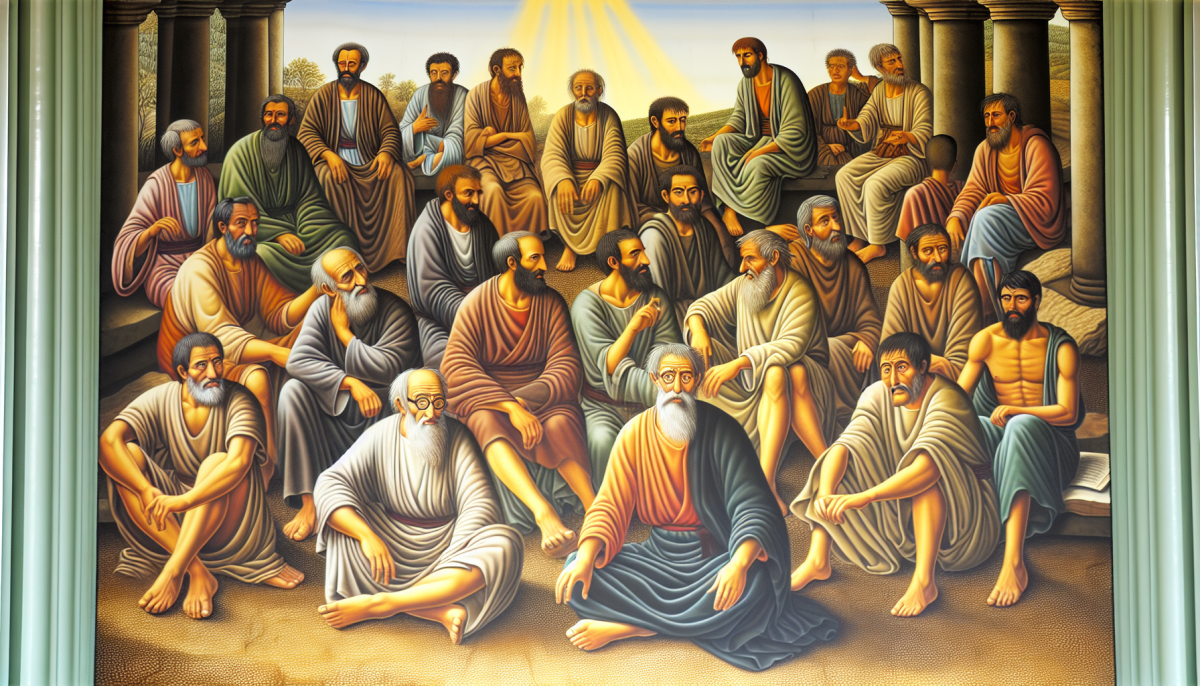The Twelve Disciples, also known as the Twelve Apostles, were chosen by Jesus Christ to be His closest followers and to spread His teachings. These ordinary men played a crucial role in the early Christian church, witnessing many miracles and teachings firsthand. Their commitment and faith laid the foundation for Christianity as we know it today.
Each of the twelve disciples had unique personalities and backgrounds. For instance, Peter, a fisherman, was known for his boldness and strong leadership. James and John, also fishermen, were known as the "Sons of Thunder" for their passion and zeal. On the other hand, Matthew was a tax collector, showing that Jesus' call reached even those considered outcasts in society. This diversity among the twelve disciples highlights the inclusive nature of Jesus' ministry.
The calling of the twelve disciples was not just a random selection; it was intentional and significant. Jesus empowered these men to preach the Gospel, heal the sick, and drive out demons. They were witnesses to His life, death, and resurrection, making them pivotal figures in spreading the message of Christianity across the world. Their journeys are detailed in the New Testament, where we learn about their struggles, triumphs, and unwavering faith.
Throughout history, the twelve disciples have inspired countless individuals seeking to live a life of faith and service. Their stories remind us that ordinary people can accomplish extraordinary things when they follow a higher calling. Understanding the lives and contributions of the twelve disciples helps us appreciate the core messages of love, hope, and redemption that Jesus preached.
Individual Stories of Each Disciple
The twelve disciples of Jesus Christ were a diverse group, each with their own unique backgrounds and stories. One of the most well-known is Peter, a fisherman from Galilee. Often seen as the leader among the disciples, Peter was bold and passionate. He famously walked on water but also denied knowing Jesus three times. His journey is one of faith and redemption, showing how even the strongest leaders can falter.
Then there’s John, often referred to as the beloved disciple. He was known for his close relationship with Jesus and is credited with writing several New Testament books, including the Gospel of John. John’s story is one of love and devotion, emphasizing the importance of staying close to the teachings of Jesus. His insights have had a lasting impact on Christian beliefs, capturing the essence of Christ’s message.
Another unique story comes from Matthew, the tax collector. Considered a social outcast during his time, he became a disciple after Jesus called him to follow. Matthew’s transformation from a life of greed to one of service reflects the powerful change that faith can bring. His Gospel emphasizes Jesus’ teachings and highlights the importance of reaching out to those who are marginalized, showcasing the inclusive nature of the twelve disciples.
Lastly, there’s Thomas, often remembered as ‘Doubting Thomas’ because he struggled to believe in the resurrection until he saw Jesus with his own eyes. His story resonates with many who seek proof amidst their faith. Thomas’ journey illustrates that questions and doubts can lead to a deeper understanding and a stronger faith in the teachings of Christ, solidifying his place among the twelve disciples.
Impact on Early Christianity
The impact of the twelve disciples on early Christianity cannot be overstated. These individuals, chosen by Jesus himself, played crucial roles in spreading his teachings and establishing the foundations of what would become a global religion. Each disciple brought unique perspectives and skills, which contributed to the diverse and vibrant community of believers that emerged after Jesus’ resurrection.
Following the resurrection of Jesus, the twelve disciples were tasked with leading the early church. They boldly preached the message of Jesus in various regions, often facing persecution for their beliefs. Their dedication and courage inspired many to join the movement, helping to create a sense of unity among followers. The disciples’ ability to adapt to different cultures and communicate effectively made it possible for the teachings of Jesus to transcend local boundaries.
Additionally, the twelve disciples served as key figures in the formation of church doctrine and leadership structures. They gathered to discuss and decide on critical issues, such as how to integrate Gentiles into the faith. This not only shaped the trajectory of early Christianity but also laid the groundwork for future generations of believers. Their choices and teachings continue to influence Christian doctrine to this day.
Legacy and Significance Today
The legacy of the twelve disciples of Jesus Christ continues to resonate throughout history and modern society. These men were not just followers; they were foundational figures in the establishment of Christianity. Each disciple played a unique role in spreading Jesus’ teachings and exemplifying his message of love, compassion, and forgiveness. Their commitment and sacrifices inspired subsequent generations to carry forth those ideals, making them essential figures in the Christian faith.
Today, the teachings of the twelve disciples are commemorated in churches worldwide. Their stories are told in sermons, books, and films, serving as a source of inspiration and motivation for millions. By examining their lives, individuals can find lessons in faith, resilience, and the importance of community. The twelve disciples also serve as a reminder of the impact one can have when dedicated to a cause greater than oneself.
The twelve disciples are more than historical figures; they symbolize a pathway to spiritual growth. Their journeys from ordinary lives to extraordinary missions illustrate that anyone can become a catalyst for change. In a world often marked by division and strife, the example set by the twelve disciples encourages people to find common ground, embrace empathy, and act with kindness.







